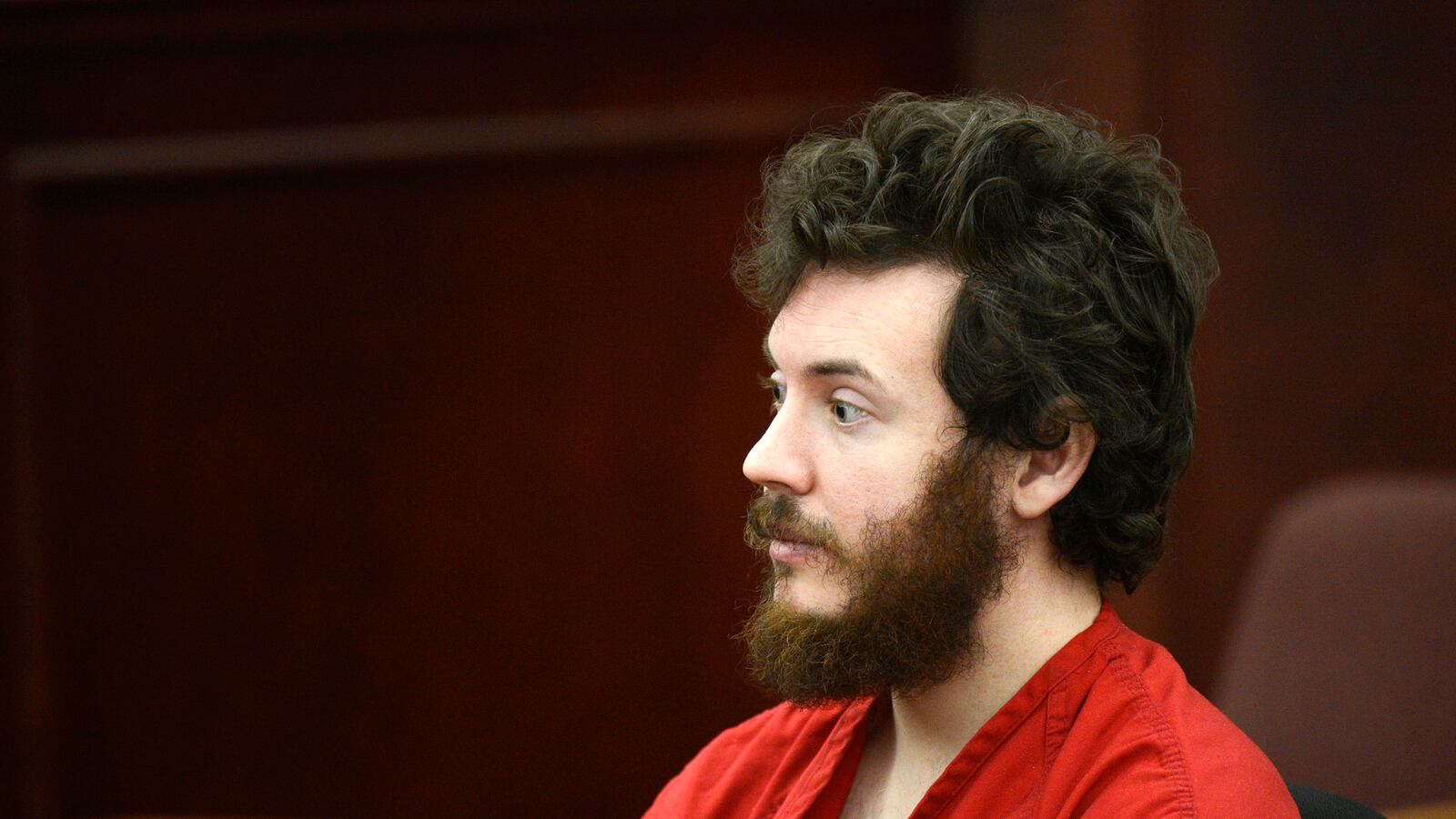The first time I saw The Dark Knight Rises I was in New York at an advanced screening for a handful of press. I had been looking forward to this viewing for four years, since the moment I devoured the series’s previous film in 2008. Yet as I sat in the front row of the intimate theatre, I had a chilling realization: I was completely vulnerable. If someone wanted to take advantage of a crowd of people who would have no way of defending themselves, this screening would be the perfect opportunity. If, God forbid, someone entered the theater with a handgun poised to fire, I would have nothing to do but pray.

Less than a week later, I awoke to the news of a mass shooting during the opening night of Dark Knight Rises at an Aurora, Colorado, movie theater. Among the many gruesome details that emerged, one stood out: There were reports that audience members, many of whom were dressed up in costume for the special showing, thought Holmes’s interruption was all part of the show—interactive special effects perhaps, or a silly prank by an overly zealous fan.
Of course they did, because a movie theater is a safe place. Growing up with an insatiable appetite for film, I always found comfort and solace in the theater, the way others might in a house of worship. I had never, not once before that time, felt that my safety was in danger by indulging my greatest hobby. And neither did the people of Aurora, Colorado.
On Monday, it was announced that prosecutors in the Aurora trial would be pursuing the death penalty for Holmes. “For James Eagan Holmes, justice is death,” the district attorney reportedly told the courtroom. But if Holmes is denied an insanity plea (for which his lawyers will undoubtedly push), for whom would his death act as a remedy? Would the death of James Holmes calm the hearts of families who have lost a loved one? Would it be cause for celebration?
When my mother was 11 years old, she came home from school to find her mother raped, strangled, and shot to death inside their rural Indiana home. At a time in American history when segregation was still a positive word for many Americans, my grandparents took it upon themselves to offer their resources (my grandfather was a doctor) to those with the lowest incomes, many of whom were African American. Because of this, one of the main suspects in my grandmother’s murder were members of the KKK. But no one was ever caught.
As a child, and even well into my teenage years, I would often lie awake at night and imagine meeting grandma’s killers. Each night I would come up with a better, more crucifying speech to inject shame and regret into their hearts, and each night, I would come up with a more gruesome and sinister way to make him—them—feel pain. Like many who have lost a loved one, I was confident my greatest victory could be found in the killer’s suffering.
But then something happened. My mother, the eternal introvert, announced she would be spending the summer touring the United States with Sister Helen Prejean (author of Dead Man Walking), along with other family members of murder victims, speaking out against the death penalty. On a mission called ”The Journey of Hope,” they would gather in churches, town halls, and universities, and speak to thousands of people about their experiences. At first, I thought she was joking. My mother’s greatest fear is public speaking, and why would she take the time to defend the man who killed her mother’s right to live?
This man, whoever he is, destroyed my mother’s childhood. He forced her, along with her older sisters, to forgo any semblance of a normal childhood. My mother became an adult at the age of 11. She spent her nights terrified that the killers might return, and planned escape routes from her house in case they came back for her. She was forced to go back to school the following Monday, and she grew up in a home where bullet holes were a permanent fixture in the floor.
Sister Helen Prejean, an outspoken advocate of abolishing the death penalty, offered an alternative perspective to death by law: “The profound moral question is not, ‘Do they deserve to die?’” she said, “But, ‘Do we deserve to kill them?’”
Her perspective on life, death, punishment and crime is something not easily accepted. Yesterday, an Aurora victim’s friend applauded the prosecution announcement, saying, “He took one of my friends from this Earth. Death equals death."
But could forgiveness be a plausible healing mechanism? If my mother, the woman perhaps most affected by my grandmother’s murder, could find forgiveness, what gave me the right not to try? And in the case of James Holmes, what would be the graver punishment: To be executed—an eye for an eye—or be forced to face his demons in a cell for the rest of his life?
I would like to call an end to the celebration of James Holmes. We all know what he looks like—the orange hair, the empty eyes— but can any of us place the face of one of his victims? As far as I’m concerned, this man deserves not an ounce more of our time. Let’s focus on offering support and healing to those who were affected most, and let’s lead by example. Even Christopher Nolan’s Batman fought against the death penalty, risking his own life to save a stranger who was guilty of a murder. “I will not become an executioner,” he said.
I cannot conclude what would be the best route of healing for those who were affected by the Aurora shootings. But as someone who has felt the rippling effects of murder in her own family, I urge prosecutors in the trail of James Holmes to contemplate the example they’ll be setting by sending Holmes to his death.






